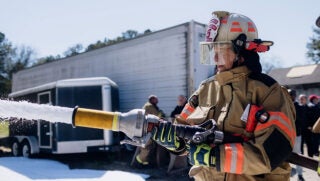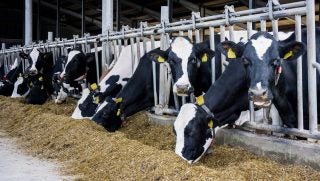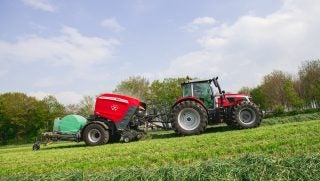Farrowing or gestation crates prevent piglet injury during the first few weeks of their life, while the sow can still access food and water under a climate-controlled system. Despite this, production systems that use these crates have come under fire in previous years, with farrowing or gestation crates being the center of contention, lawsuits, and new laws.
Amid the controversy surrounding Proposition 12 and the EATS Act, New Jersey’s Gov. Phil Murphy has banned the “extreme” confinement of breeding sows and calves raised for veal with a new bill.
The Bill, S1298 ScsSA (SCS/1R), was signed into law after passing the Senate in a 35 to one vote and the Assembly by a count of 73 to one. Sponsored by Democrats Sen. Vin Gopal and Assemblyman Raj Mukherji, fights to ban gestation crates came into play in New Jersey in 2013 when then-Gov. Chris Christie infamously vetoed legislation to ban containers in the Garden State.
“The humane treatment of domestic livestock has long been a major priority for the New Jersey Department of Agriculture and we endorse legislation that supports those rules while ensuring the farmers’ right to raise livestock,” said the state’s Department of Agriculture Assistant Secretary Joe Atchison III.
A coalition led by extremist groups Animal Legal Defense Fund and the Humane Society of the United States has sought for 13 years to ban the use of small crates that confine mother pigs and calves to raise veal — the groups have already released statements praising the new law.
S1298’s legislative action builds on the May ruling from the Supreme Court of the United States, which upheld California’s Prop 12, an action that not only puts a chokehold on pork production in states outside California but restricts the production of hens and veal calves producing products marketed to Californians to minimum space requirements.
Complying with bans such as Proposition 12 already is projected to cost pork producers $290 million to $350 million, or $3,500 — a cost that the National Pork Producers Council has said will likely be passed onto consumers. New state bills promise to contribute to that trend.
Over the past two decades, 11 states have passed similar animal welfare regulations in hog production. These regulations also ban the common use of gestation crates or stipulate space requirements for animals to stand and turn around. In addition to restrictions during production, two of these states — California and Massachusetts — passed retail sales restrictions prohibiting the sale of pork originating from animals kept in gestation-crate systems or their direct offspring.
Except for Michigan, each state with existing bans on gestation crates has produced, on average, less than 1 percent of total U.S. pork production (in pounds) since 2018. Ohio will become the largest hog-producing state to ban gestation crates when its regulations go into effect in 2026. New Jersey, in particular, produced just 7,500 hogs in 2022, according to the U.S. Department of Agriculture.
In response to the Prop 12 Supreme Court ruling by Justice Neil Gorsuch, some federal lawmakers are working to attach the Exposing Agriculture Trade Suppression Act, H.R. 4417 and S. 2019, to the farm bill. The EATS Act would prevent states with strict requirements from enforcing their laws on outside states.
Meanwhile, a national bill dubbed the PIGS Act (Pigs in Gestation Stalls) was recently introduced as H.R. 2939, which aims to ban the use of gestation crates nationally.


